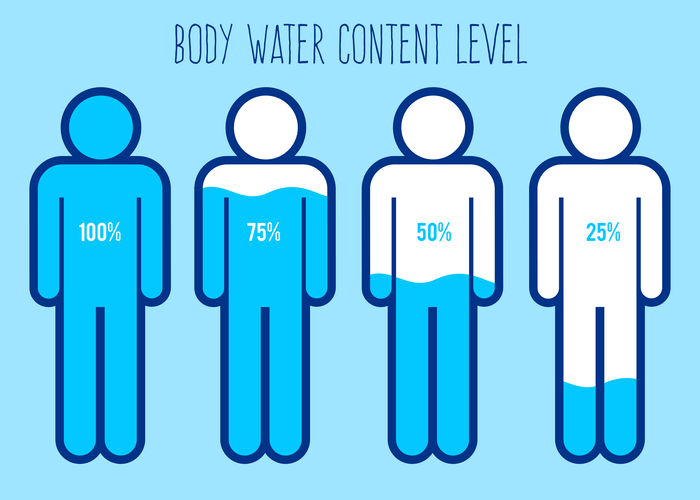Content
- Intervention: Help A Loved One Overcome Addiction
- How Do You Find A Treatment Program To Offer At The Intervention?
- 2 The Interventions Achieving The Highest Alcoholic Abstinence Rates
- How To Find An Interventionist For Alcohol
- Intervention For Alcoholism
- Talk At The Appropriate Time
- How Does A Typical Intervention Work?
How COVID-19 Has Impacted Alcohol AbuseAs the COVID-19 pandemic continues, the numbers of alcohol abuse have continued to rise, causing concern across America. People invited to the intervention should include family members, close friends, and, when appropriate, employers or fellow employees. Contact health insurance providers to see if there are options covered by insurance. Find a social worker, often through a nearby hospital, rehabilitation center, or therapy office. Discussions about emotional hurt, anger, fear, or concern should only come up if they reflect the love of family and friends. It’s too easy for the subject to retreat to a bedroom or bathroom and end the conversation, and private places tend to become more emotionally charged than public settings. A restaurant is a good place to hold such a meeting, because everyone involved will comport themselves accordingly, and there’s a time limit on how long the intervention can drag itself out.
Preparation is a vital part of a successful drug or alcohol intervention. A professional interventionist can guide your family through the steps to help your loved one. The type of intervention that your medical professional recommends will depend on your goals, unique experience with addiction, and family dynamics.
Intervention: Help A Loved One Overcome Addiction
The intervention itself may set off additional behavior problems that can complicate the relationship between the addicted person and the intervention team members. Once every member of the intervention team has had a chance to speak, the addict should be presented with detailed suggestions for a treatment plan. The addict can accept the offer then and there, or the team may be willing to give them a few days to weigh their options. It can provide the occasion for friends and relatives to offer examples of how alcoholism has been destructive and had a detrimental impact on the addicted person and the people around them. You can find a professional interventionist by consulting a treatment center near you. Your preferred treatment center will have access to professionals and they can refer you. If your loved one reaches this level, the Intervention Network holds a Formal ARISE Intervention.

Non-RCTs or observational trials, trials without sufficient parametric data, and trials without interesting (e.g., preclinical pharmacotherapy testing for hours; studies focusing on holidays, anniversaries, or ceremonies) were excluded. In addition, papers of reviews, comments and basic science were also excluded. In short, the strategy seeks to prompt individuals to think differently about their use of alcohol and ultimately consider what might be gained through change. alcoholic intervention Thankfully, I had no interest, and I spent my time with a small group of lovely women who were closer to my age. Perhaps if I had asked “Bob” some real questions — like what the median age of the clientele was — I would have found a more suitable program for myself. However I did meet some amazingadultwomen, and learned a lot about the disease in general. There are several parts to a good intervention letter, and all of them are displayed in the example above.
How Do You Find A Treatment Program To Offer At The Intervention?
If the program requires travel, make arrangements ahead of time — consider having a packed suitcase ready for your loved one. Contact national organizations, trusted online support groups or local clinics for treatment programs or advice.
- Brief intervention can often be referred to as screening and brief intervention or, in England, identification and brief advice .
- Have they lost interest in activities they used to enjoy because of alcohol?
- Finally, ranking probabilities may be influenced by unequal numbers of trials per comparison and network configuration.
- Instead, they may measure their success by how well they follow through with statements and boundaries voiced during and after the intervention.
Finally, ranking probabilities may be influenced by unequal numbers of trials per comparison and network configuration. For these reasons, these results require further statistical validation and should be interpreted with caution. For extraction of outcomes, the raw data of abstinence rates in treatment sessions and in follow-up sessions were individually extracted for separate comparisons. Treatment sessions were defined as the whole therapeutic period under respective alcoholic intervention until the end of the treatment. Follow-up sessions were considered from the endpoint of treatment to the end of follow-up without any interventions in each group. Self-reports of no alcohol use, continuous negative detection of monitoring devices, or/and rates of continuous negative bio-sample testing were considered available abstinence data for comparison. It is painful to watch alcoholism or drug addiction destroy a loved one’s life.
2 The Interventions Achieving The Highest Alcoholic Abstinence Rates
The model relies on this by creating a proactive and gentle approach to addressing your loved ones addiction without traditional shocks, surprises, or threats. Your loved one is addressed with understanding while providing clear consequences if they are unwilling to engage with help. With the help of drug or alcohol intervention Sober companion services, you can assist your loved ones in recognizing the effects of their substance abuse and help them find the assistance they need. The lack of evidence does not allow for a conclusion regarding the efficacy of MAP on their own, or as compared to brief intervention, moderate drinking, no intervention or 12-step variants.
Family interventions require the family intervention team to take part in meetings that span a few days, not hours. During a family drug intervention, the family intervention team begins to learn how to change old patterns of behavior, communicate with one another and implement lasting changes. Many times, these interventions take place in the workplace, with the full cooperation of the employer. These symptoms are only an example of what alcohol can do to your loved one and your family. When alcoholism starts causing your loved one’s life to unravel, an alcohol intervention can be the fastest and most effective way to address the problem and kick-start healing process for the addict and his or her loved ones. Authoritative resources and protocols can allow nonspecialist health care providers to provide screening, brief interventions and/or referral to treatment for at-risk patients.
How To Find An Interventionist For Alcohol
You do, however, have the power to remove yourself — and any children — from a potentially dangerous situation. Interventions allow families to take an active role in their children’s lives.
I told him that you are an alcoholic and this was your intervention.
— dakota bot (@dakotamoviebot) December 3, 2021
You can’t just unleash the flood gates of everything you’ve been feeling; it all has to be mapped-out and scripted. That’s a difficult thing to adhere to, but it’s more necessary than you may realize. Often, children, partners, siblings and parents are subjected to abuse, violence, threats and emotional upheaval because of alcohol and drug problems. You don’t have control over the behavior of your loved one with the addiction.
Intervention For Alcoholism
During a formal intervention, the people in the Network enforce the consequences of failing to accept help. These can be serious consequences like ending a relationship or losing living quarters. The ARISE intervention model takes its acronym from its full name, A Relational Intervention Sequence for Engagement. The ARISE method is a family-based intervention that marks itself with a respectful, coercion-free approach that comes from a place of love. This model is one of the older intervention models and some people have concern that it’s too confrontational, leading to negative emotional reactions. In fact, 70% of families who planned a Johnson intervention failed to actually implement it in one study. The consequences set forth in a Johnson model intervention can seem harsh, but it’s for a good reason.
Clinical interventions for adults with comorbid alcohol use and depressive disorders: A systematic review and network meta-analysis — PLoS Blogs
Clinical interventions for adults with comorbid alcohol use and depressive disorders: A systematic review and network meta-analysis.
Posted: Fri, 08 Oct 2021 07:00:00 GMT [source]
[Study on the perception of influencing factors in the course of alcoholism—a comparison among alcoholics, families, and health care professionals]. When employing a motivational brief intervention with a person who already is committed to change, it is better not to focus on the “pros” of drinking or substance use in a decisional balance component. For those seeking addiction treatment for themselves or a loved one, the Alcohol.org helpline is a private and convenient solution. In addition, as mentioned above, when interventions are planned and not supervised by a professional, they run the risk of becoming venting opportunities for frustrated family members and friends, and can get quite confrontational. When interventions are viewed as opportunities to vent and accuse the subject, their effectiveness is significantly decreased. During the planning stages, the group decides on what types of consequences it will place on the person with the alcohol use disorder if they refuse to enter treatment.
In reality, staging an intervention is a complex process that you can’t sum up as a stereotype. 7-Stage Crisis Intervention Model, which helps people with SUD through a crisis, such as an overdose, relapse, or a non-substance-related event. Addiction can distort our perception, but a life in recovery can restore our ability to find peace once again.
worst alcoholic intervention ep. was this country rock band couple that had 4 kids & wer madly n 💜 except they drank beer all day. The wife decides 2 quit, not realizing she needed medical detox, has a seizure, falls down stairs, dies. Husband drank & died like a yr or 2 later.
— Clovrmay (@clovrmay_7) December 9, 2021
It’s challenging to help a loved one struggling with any type of addiction. Sometimes a direct, heart-to-heart conversation can start the road to recovery. But when it comes to addiction, the person with the problem often struggles to see it and acknowledge it. You may need to join forces with others and take action through a formal intervention. From 12-Step to Internal Family Systems therapy and more, we have addiction recovery options for every person and every situation. The 7-Stage Crisis Intervention model can help people with SUD through a crisis, such as an overdose, relapse, or a non-substance-related event.
The average layperson’s view of intervention is influenced by what you’ve seen in the media, not what happens in real life. The result is common false perceptions about drug addiction interventions. Talk to a drug addiction counselor or a professional interventionist if you’re not sure what type of intervention is the right choice. Sometimes that doesn’t happen, and your loved one reacts badly, but that doesn’t mean the intervention has failed. Even in that case, you’ve shown your loved one that they are worth the work of recovery and they have a support system of people who care about them.

Scripting the intervention is where a lot of the diligence comes into play. You’ll be able to carefully construct your own personal part in the intervention, but the entire event needs to be scripted.

One of the more important pieces of a successful intervention is involving the right people on your team, which is why we enlist our interventionists to assist you every step of the way. Some nonspecialist providers may find it challenging to address drinking above low-risk levels with their patients .